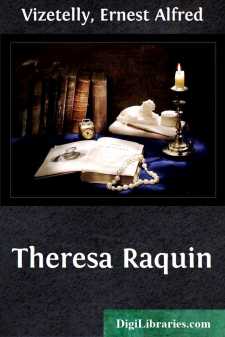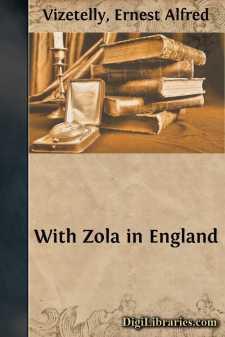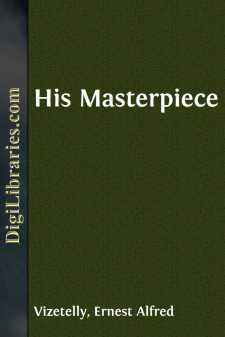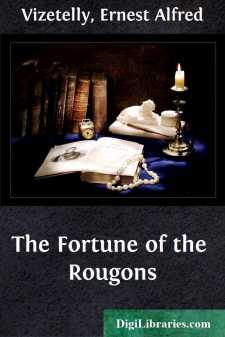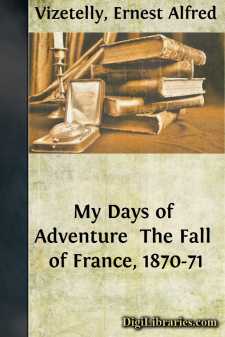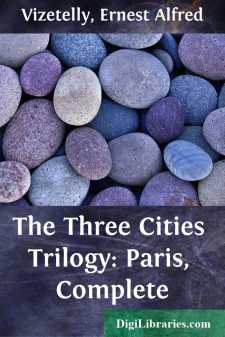Categories
- Antiques & Collectibles 13
- Architecture 36
- Art 48
- Bibles 22
- Biography & Autobiography 813
- Body, Mind & Spirit 142
- Business & Economics 28
- Children's Books 15
- Children's Fiction 12
- Computers 4
- Cooking 94
- Crafts & Hobbies 4
- Drama 346
- Education 46
- Family & Relationships 57
- Fiction 11828
- Games 19
- Gardening 17
- Health & Fitness 34
- History 1377
- House & Home 1
- Humor 147
- Juvenile Fiction 1873
- Juvenile Nonfiction 202
- Language Arts & Disciplines 88
- Law 16
- Literary Collections 686
- Literary Criticism 179
- Mathematics 13
- Medical 41
- Music 40
- Nature 179
- Non-Classifiable 1768
- Performing Arts 7
- Periodicals 1453
- Philosophy 64
- Photography 2
- Poetry 896
- Political Science 203
- Psychology 42
- Reference 154
- Religion 513
- Science 126
- Self-Help 84
- Social Science 81
- Sports & Recreation 34
- Study Aids 3
- Technology & Engineering 59
- Transportation 23
- Travel 463
- True Crime 29
Ernest Alfred Vizetelly
Ernest Alfred Vizetelly was an English writer and journalist known for his prolific literary output in the late 19th and early 20th centuries. He specialized in translating French literature into English, contributing significantly to the popularization of French works in the English-speaking world. Vizetelly also authored several biographies and historical works, showcasing his versatility as a writer and his deep interest in European culture and history.
Author's Books:
Sort by:
PREFACE This volume, "Therese Raquin," was Zola's third book, but it was the one that first gave him notoriety, and made him somebody, as the saying goes. While still a clerk at Hachette's at eight pounds a month, engaged in checking and perusing advertisements and press notices, he had already in 1864 published the first series of "Les Contes a Ninon"—a reprint of short...
more...
BEFORE perusing this work, it is as well that the reader should understand M. Zola's aim in writing it, and his views—as distinct from those of his characters—upon Lourdes, its Grotto, and its cures. A short time before the book appeared M. Zola was interviewed upon the subject by his friend and biographer, Mr. Robert H. Sherard, to whom he spoke as follows: "'Lourdes' came to be...
more...
I. THE train had been greatly delayed during the night between Pisa and Civita Vecchia, and it was close upon nine o'clock in the morning when, after a fatiguing journey of twenty-five hours' duration, Abbe Pierre Froment at last reached Rome. He had brought only a valise with him, and, springing hastily out of the railway carriage amidst the scramble of the arrival, he brushed the eager...
more...
I ZOLA LEAVES FRANCE From the latter part of the month of July 1898, down to the end of the ensuing August, a frequent heading to newspaper telegrams and paragraphs was the query, 'Where is Zola?' The wildest suppositions concerning the eminent novelist's whereabouts were indulged in and the most contradictory reports were circulated. It was on July 18 that M. Zola was tried by default...
more...
PREFACE BEFORE perusing this work, it is as well that the reader should understand M. Zola's aim in writing it, and his views—as distinct from those of his characters—upon Lourdes, its Grotto, and its cures. A short time before the book appeared M. Zola was interviewed upon the subject by his friend and biographer, Mr. Robert H. Sherard, to whom he spoke as follows: "'Lourdes'...
more...
I CLAUDE was passing in front of the Hotel de Ville, and the clock was striking two o'clock in the morning when the storm burst forth. He had been roaming forgetfully about the Central Markets, during that burning July night, like a loitering artist enamoured of nocturnal Paris. Suddenly the raindrops came down, so large and thick, that he took to his heels and rushed, wildly bewildered, along the...
more...
I THAT morning, in the little pavilion of Chantebled, on the verge of the woods, where they had now been installed for nearly a month, Mathieu was making all haste in order that he might catch the seven-o'clock train which every day conveyed him from Janville to Paris. It was already half-past six, and there were fully two thousand paces from the pavilion to Janville. Afterwards came a railway...
more...
INTRODUCTION "The Fortune of the Rougons" is the initial volume of the Rougon-Macquart series. Though it was by no means M. Zola's first essay in fiction, it was undoubtedly his first great bid for genuine literary fame, and the foundation of what must necessarily be regarded as his life-work. The idea of writing the "natural and social history of a family under the Second Empire,"...
more...
PREFACE While this volume is largely of an autobiographical character, it will be found to contain also a variety of general information concerning the Franco-German War of 1870-71, more particularly with respect to the second part of that great struggle—the so-called "People's War" which followed the crash of Sedan and the downfall of the Second French Empire. If I have incorporated...
more...
TRANSLATOR'S PREFACE WITH the present work M. Zola completes the "Trilogy of the Three Cities," which he began with "Lourdes" and continued with "Rome"; and thus the adventures and experiences of Abbe Pierre Froment, the doubting Catholic priest who failed to find faith at the miraculous grotto by the Cave, and hope amidst the crumbling theocracy of the Vatican, are here...
more...


